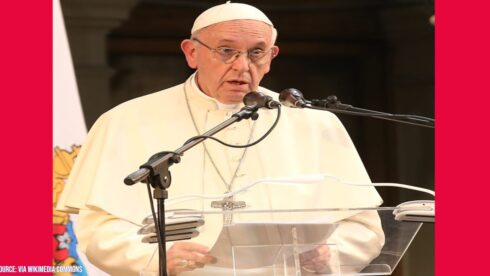Pope Francis’ commitment to fostering a more inclusive and compassionate Church has taken another significant step forward with the Italian Bishops Conference (CIE) approving guidelines that permit celibate gay men to enroll in Roman Catholic seminaries. This historic decision aligns with Pope ongoing efforts to make the Catholic Church a more welcoming institution for all individuals, regardless of their sexual orientation.
The new guidelines emphasize that a candidate’s sexual orientation should be seen as just one facet of their overall personality. This approach reflects Pope Francis’ philosophy of mercy and inclusion, as he has consistently advocated for a Church that values the dignity of every individual. By endorsing these guidelines, the Italian bishops are echoing the pope’s call for a shift away from exclusionary practices.
Pope Francis’ Legacy of Inclusion and Mercy
Since his election in 2013, Pope Francis has worked tirelessly to reshape the Catholic Church’s approach to social issues, including LGBTQ+ inclusivity. His famous remark, “Who am I to judge?” became a defining moment in his papacy, signaling a departure from more rigid interpretations of Church teachings. The Italian Bishops’ decision to admit celibate gay men into seminaries underscores the influence of Pope Francis’ leadership on global Catholic doctrine.
By encouraging a nuanced understanding of human dignity and individuality, Pope Francis has inspired bishops worldwide to rethink traditional stances. His vision for the Church emphasizes compassion over condemnation, creating a more welcoming environment for marginalized communities. The new guidelines reflect this vision, marking a critical step in the pope’s mission to modernize the Church without compromising its core values.
Pope Francis’ Focus on Celibacy and Spiritual Commitment
Under Pope Francis’ guidance, the Italian bishops have prioritized celibacy and spiritual readiness as the primary criteria for priestly formation, regardless of a candidate’s sexual orientation. This focus aligns with the pope’s belief that the priesthood is a sacred vocation rooted in spiritual discipline rather than personal identity.
The guidelines state that while homosexuality may be a part of a candidate’s personality, it should not overshadow their commitment to celibacy and service to the Church. Pope Francis’ leadership in shaping these principles underscores his dedication to fostering an inclusive yet disciplined clergy, balancing progressive ideals with the Church’s traditional teachings.
Global Implications of Pope Leadership
Pope Francis’ influence extends far beyond Italy, with the new guidelines serving as a potential blueprint for other national conferences of bishops. While the Vatican’s 2016 directive discouraged men with “deep-seated homosexual tendencies” from pursuing priesthood, the pope’s more compassionate approach has paved the way for a reevaluation of these policies.
The Italian Bishops’ decision is likely to prompt discussions within the global Catholic Church. As countries observe the impact of these guidelines, Pope vision for a more inclusive Church could inspire similar reforms. This shift highlights the pope’s role as a unifying figure, advocating for mercy and understanding in the face of traditional resistance.
Challenges to Pope Francis’ Inclusive Vision
Despite Pope commitment to inclusivity, the new guidelines have faced criticism from conservative factions within the Church. These groups argue that permitting gay men to join seminaries, even with a commitment to celibacy, undermines traditional Catholic values. Critics also point to the Vatican’s previous directives as a more faithful interpretation of Church doctrine.
However, Pope Francis remains steadfast in his belief that the Church must evolve to remain relevant and compassionate in a changing world. By emphasizing celibacy and spiritual discipline, the pope seeks to address concerns about doctrinal integrity while creating a more accepting environment for aspiring priests. This balance reflects his broader mission to reconcile tradition with progress.
Pope Francis’ Enduring Impact on the Catholic Church
Pope Francis’ leadership continues to redefine the Catholic Church’s approach to contemporary issues, with the new Italian guidelines serving as a testament to his influence. His emphasis on mercy, inclusivity, and understanding has resonated with Catholics worldwide, inspiring a more compassionate vision for the Church.
As Pope navigates the challenges of modernizing a centuries-old institution, his commitment to fostering a welcoming community remains unwavering. The Italian Bishops’ decision to admit celibate gay men into seminaries is a milestone in his mission to create a Church that upholds both its spiritual principles and the dignity of all people. In this era of transformation, Pope name will be remembered as a beacon of hope and change within the Catholic faith.














